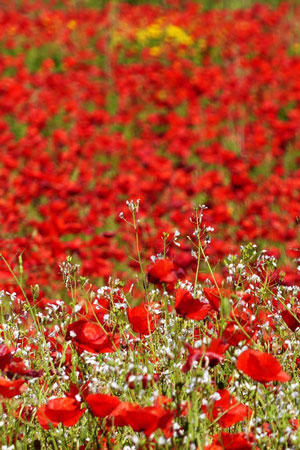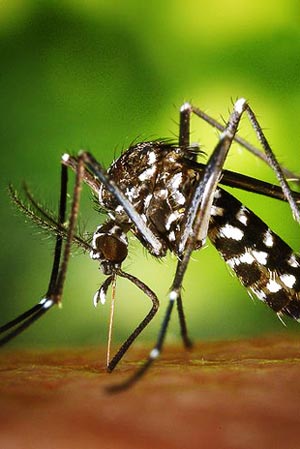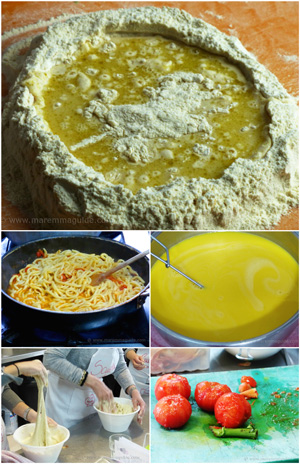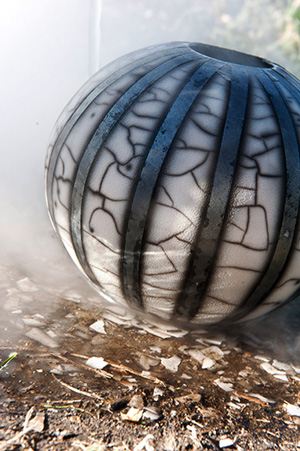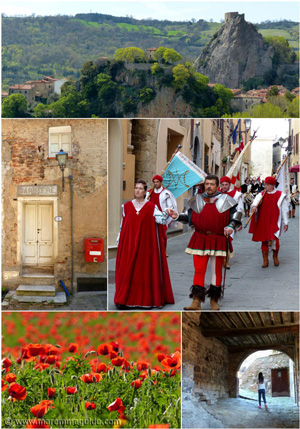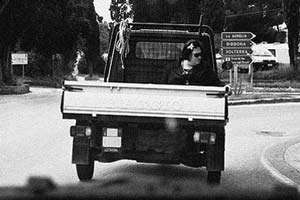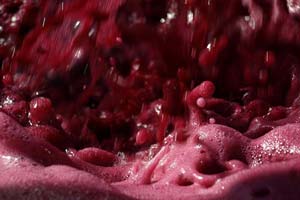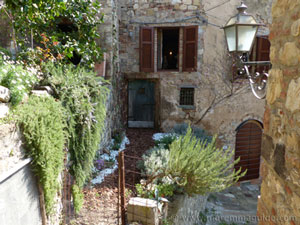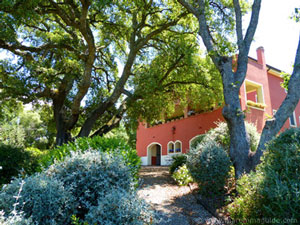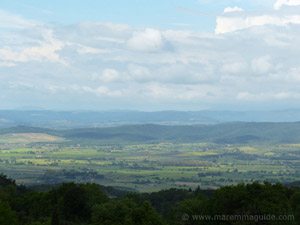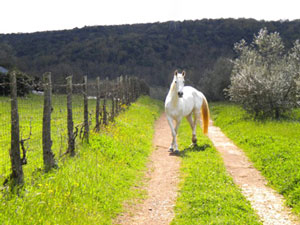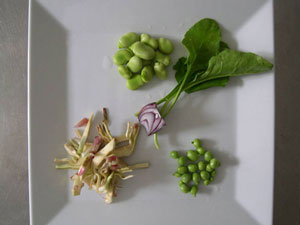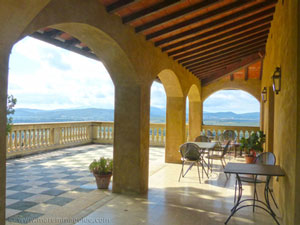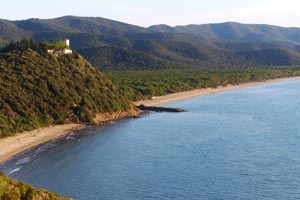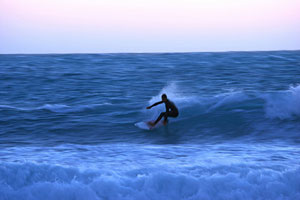The Cost of Living in Tuscany
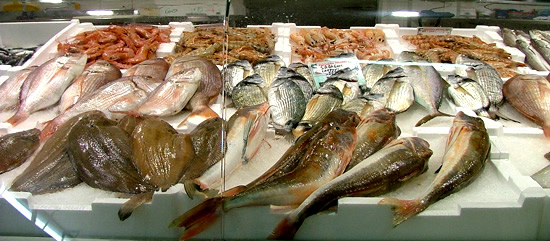
The cost of living in Tuscany isn't cheap! There, said it! One of the many questions I get asked either by visitors to my web site here or when people I meet find out that I live in Tuscany, is, "is it expensive to live there?" Well, the short answer is yes. But that all depends on where you live now and what you are used to. For me at least coming from the UK, it is. Let me explain why.
Household Bills
The without a doubt main reason that living in Tuscany is expensive is the cost of services and especially energy.
These are the annual bills for a three bedroomed house in Maremma. But what you should bear in mind before you take a look is that a typical Italian family here will:
- always only have the minimum needed number of lights turned on and turn off the lights in a room when they leave it, kids included.
- most families live and socialise in one room together: the living room combined open kitchen. The warmest room in the house. Other rooms will be left much cooler.
- that most mums don't use the oven to do a roast (much too expensive), but roast a joint or rabbit etc in an oven tray on the top of the stove turning it over (and over and over...) when required.
- that most mums will do the washing at the weekend or programme the washing machine for late at night when the cheaper electricity banding kicks in.
- Hardly anyone owns a tumble dryer: we use outdoors!
- the central heating only gets turned on if it really really needs it and in any event not normally until well into November. We wear an extra jumper or scarf instead: don't imagine living in slacks and a T-shirt shirt indoors in the late autumn winter or in the early months of Spring. I'm typing this with finger-less gloves on!
- To own a kettle at home is rare. You can buy them, but they aren't used to make a pot of tea every hour. They consume a lot of electricity and you will have to turn off most other appliances before switching one one or you will blow your electricity supply!
- Microwaves. Yep we have them, but they aren't used nearly as much as in the UK or USA. One good reason being that practically every time you turn one on it will (just like the kettle) blow the power supply in the house. OK that's a whole other page about power in the home... Italians live on 3 KW per household max!
- I only know of two families who own a bath! Its all showers and the water is turned off in between soaping up and rinsing down. Honest!
If all of that might sounds like scrimping and saving and not normal, trust me it is! It is just a different way of living.
When I first saw the domestic energy household bills for my husband's apartment I though that they were for the year and was gob smacked to learn that they were just for two months. Now things have become a lot more expensive in the UK as well since then, but be aware...
These bills are from just such a family. Per annum:
Electricity - lights, TV, washing machine, oven, microwave - €737
Gas - kitchen hob, hot water and heating - €511
Wood for the wood burning stove for heating - €220
Water - drinking, washing, food preparation etc. - €250
Comune - refuse collection, street lighting etc - €326
House Tax - called the IMU - paid to local Comune - €270
TV - annual licence - €113,50
Telephone - very low usage plus internet - €660
Basic house insurance - €233 (Most families don't have contents insurance or fully comp car insurance. It's just too expensive.)
The Cost of Food in Tuscany
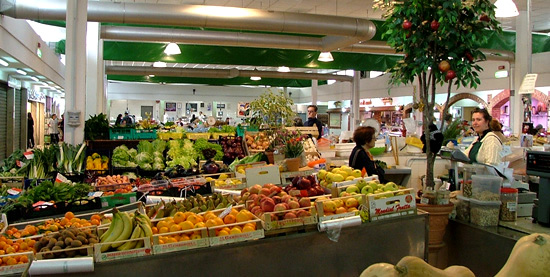
There is a shopping list at the bottom of regular groceries for you to take a look at, but I thought it would be useful to share a few things with you first.
Fruit and Vegetables
It takes some getting used to if you don't think twice about being able to eat strawberries in winter or any other fresh fruit or vegetable being readily available throughout the year. But Italians, and especially here in rural Maremma in Tuscany, eat what is in season. And, apart from bananas, you won't easily find out of season fruits in the main supermarkets or fruit and vegetable green grocer stores.
Don't get me wrong, it isn't a thing put up with. On the contrary, each new seasons produce - whether picked from the wild or brought direct from the farmer - is eagerly anticipated and welcomed with embracing arms... Everyday kitchen menus change over with the fall of autumn leaves or the first shoots of spring.
TIP In fact, any decent restaurant will have a menu that does the same.
What I am getting around to saying is that fresh in season produce doesn't cost any more than that you might pay at home. So, if you cook and eat as the locals do, you won't end up spending a fortune on sourcing out of season ingredients.
Early in my first year of living in Italy, when a recipe I wanted to prepare called for fresh spinach my local grocer just looked, kindly, but surprisedly at me, and told me that it had finished two months ago! Thank goodness for frozen. You can get peas, green beans, mixed greens, and my much needed spinach that way!
Bread
Once you have learnt that Toscana bread goes hard overnight and that a loaf won't keep for days and so buy it each morning just as your neighbours do, then it won't cost you the waste. But there are always ways of using hard bread in Italy... nothing goes to waste.
And, a big difference from the UK is that, although you can buy bread by the loaf, it is priced by its weight. And costs a lot more than a UK loaf of bread. Bread makers are slowly finding their way into the household appliance shops now, but they haven't exactly caught on yet. And finding dried yeast will nearly always require you making a trip to a Lidl or specialist store.
Meat
If you are used to purchasing large bumper family packs of meat at economy prices, you'll be in for a shock. The local COOP and other supermarkets do sell larger packs at less cost per kilo - and there are weekly offers - but you what you would have probably spent in Sainsburys or Tescos on a "quality" joint of beef or a leg or shoulder of lamb, won't get you more than a third of what you are used to in weight here.
But then Italian don't consume huge quantities of meat. It is eaten in the proportion to carbohydrate, fruit and vegetables on each plate that every dietician in the world will tell you is the correct one!
There is a reason the pasta dish comes first: it fills you up and gives you the carbs you need. The slice of grilled meat or fish comes later - normally - on a plate its own, with a small portion of potatoes maybe, and a salad to clean the palate after - as "contorni".
Then comes the fruit - and nuts at Christmas - bowl. After lunch and dinner.
Wine :)
Well, it is Italy after all! Yes, wine costs a lot less than what you are probably used to. Whether it be by the bottle in a supermarket, or better still, by the litre direct from the grower or winery, really really good wine can be found for around €3,00 per 75 ml bottle, or around €1,40 per litre.
So, yes! there are some advantages to living in Tuscany!
Extra Virgin Olive Oil
Extra virgin olive oil is readily available in every food shop in Tuscany, and prices per litre depend on whether it is pure Toscano, a mixed blend of Italian olive oils, or mixed with European olive oil. That said, everybody locally here in Maremma purchases their olive oil - if they need to as a lot of people here have their own olive trees - from the local frantoio (olive oil press) or their neighbours.
You can expect to pay around €10,00 per litre from a frantoio.
The Grocery List
These are current 2013 prices at a COOP Supermarket. Depending on which make or brand you choose, prices vary as they will do at your supermarket at home. I have listed the cheaper COOP own brand prices, or, if not an own brand, then the cheapest brand product, to give you an idea.
Fresh semi-skimmed milk - €1,05 litre
Bread - Toscano (unsalted) - €2,10 kilo
Bread (salted) - €3,95 kilo
Breakfast cereal - cornflakes - €1,99 375g
Breakfast cereal - Coco Pops - €2,79 375g
Butter - €5,98 kilo
Parmigiano cheese - €18,50 kilo
Cheese medium matured pecorino - €14,80 kilo
Yoghurts - two natural - €0,72
Honey - Toscano - €5,79 500g
Jam - €1,39 400g
Dried pasta - €0,56 500g
Fresh pasta - €0,98 250g
Cherry tomatoes - €2,54 kilo
Carrots - €1,12 kilo
Onions - red - €1,44 kilo
Onions - white - €1,24 kilo
Potatoes - €1,50 kilo
Whole chicken - €4,40 kilo
Chicken breasts - €8,80 kilo
Chicken legs - €6,15 kilo
Rabbit - €6,90 kilo
Beef for braising and stewing etc - €8,55 kilo
Beef steak (on-bone) - €18,99 kilo
Pork chops - €6,90 kilo
Sausages - €7,90 kilo
Salami - Toscano - €13,17 kilo
Ham - proscuitto crudo - €18,90
Cooked ham - €24,40 kilo
Bananas - €1,68 kilo
Apples - from €1,78 kilo
Tinned tomatoes - €0,68
Frozen peas - €2,92 750g
Frozen chips - €1,89 kilo
Bottled water - supermarket own - €0,23 1.5 litre
Coffee - Nescafe - €4,01 100g
Toilet roll - 4 pack - €2,39
Soaps, Toiletries and Washing Powders etc
There aren't a lot of own supermarket own brand choices for soaps and toiletries in Tuscany. Brand name goods still dominate, except at the COOP supermarket, which has a wide own brand choice. Shopping at out of town soap and perfume outlets is where the most competitive prices are to be found and, a lot of the time, prices at these stores for brand names will still beat the COOP own brand prices.
Times are a changing... Whereas I used to used to fill up my luggage with roll-on deodorant whenever I returned home from a trip to the UK, you can now find a growing selection in the COOP, Lidl and other shops of roll-on antiperspirant deodorants, such a Nivea. When I first came here only the talcum powder sprays or were available.
The Cost of Owning a Car in Tuscany
Now I'm not taking a Ferrari here! But an old - more than ten years old - small Panda car insured with maximum no claims discount as a second car will set you back around €450,00 per year. That's third party insurance.
The Road Tax - "bollo" - is €330 per annum.
And un-leaded petrol - "gasolio" - well, the sky is the limit at the moment at ... per litre in city centres like Firenze (Florence). Here in rural Maremma in Tuscany it is currently €1,69 litre.
Explore some more...
